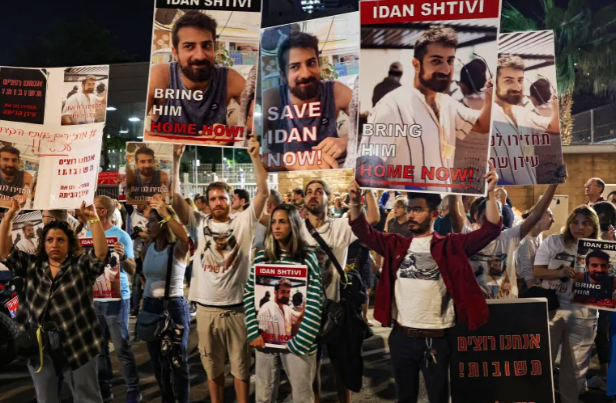Israel
Israel War Protest Surge Amid Captive Crisis

Amid the cacophony of the Israel war, the nation’s thoroughfares have been transformed into arenas of fervent dissent. Protesters flood the historic streets of Jerusalem and the vibrant pathways of Tel Aviv, their chants as resounding as the blasts that have shattered the calm in southern Israel and the Gaza Strip. This burgeoning movement rises not just in defiance of the fresh onslaught by Hamas but in a profound challenge to Prime Minister Benjamin Netanyahu’s leadership during a crisis that lingers without end.
This crisis did not emerge in a vacuum; it is set against a historical tapestry rich with conflict and fraught with the complexities of regional politics. Israel, a nation carved out of the aftermath of World War II and the ashes of the Holocaust, has faced numerous challenges since its inception. These challenges have been shaped by wars and rumors of wars, by the rise and fall of leaders, and by the enduring question of how to navigate the politics of survival in a region where enmity and alliance often share the same bed.
Hadas Kalderon, bearing the stoic countenance of the bereaved, stands as a pillar amidst a tempest of turmoil. Five of her kin, she tells us, are languishing in the unseen confines of captivity. “I reside in purgatory,” she utters, her anguish slicing through the cacophony of impassioned demonstrators around her. The crowd, a mosaic of the worried and the wrathful, pulsates with a singular rhythm of urgency. They crave action, they implore for a flicker of information, but above all, they hunger for the return of souls snatched into the abyss of the unknown.
Their banners, flaring in the wind, are more than symbols; they are the physical extensions of their dread and their dreams, emblazoned with the fervency of their collective crusade for reclamation. Each inscription, every chant is a thread in the fabric of their defiance, weaving a narrative of hope that stretches beyond the despair of the present.
In this, they find a curious kinship: their resilience an echo of the very spirit they seek to ignite in those they yearn to bring home. They are transformed, not into mere protesters, but into custodians of hope, guardians of a future where the return of the taken becomes more than just a possibility – it becomes an imperative written in the stars.
Netanyahu’s record sixth term has become mired in controversy beyond the corruption charges he vehemently denies. The surprise assault by Hamas on October 7, resulting in significant Israeli casualties and captives, has become a symbol of national unpreparedness, laying bare the vulnerabilities of a state in a perpetual posture of defense. The government’s response to the crisis, including its strategies or lack thereof, is now under the harshest of spotlights, magnifying the divide between state policy and public sentiment.
The prevailing narrative, one of a strong Israel unyielding in the face of hostility, is now punctuated by criticism and introspection. The Channel 13 Television poll signals a loss of faith among the Israeli public, not just in Netanyahu but in the echelons of military leadership. Questions arise as to whether the doctrine that has held Israel’s defense as ironclad is as infallible as once believed. In the balance, hangs the defense minister’s role, scrutinized by only 5 percent, perhaps indicative of a populace looking first to its elected head of government for accountability.
The night in Jerusalem is pierced not by stars but by the chants of thousands, their fury as palpable as the Mediterranean breeze that once brought whispers of peace. In Tel Aviv, the chants are a chorus, the desperation of relatives a gripping solo. The city’s pulse beats not to the rhythm of daily commerce but to the pounding feet of protesters who navigate through streets turned arenas of dissent.
As the echoes of protest fill Israeli streets, the future appears as uncertain as the fates of those still captive. The current atmosphere is an amalgam of sorrow and resilience, of a people all too familiar with the language of loss yet unwavering in their quest for the return of their kin. The narrative ahead will not only tell the tale of a nation’s search for its missing but will also scrutinize the leadership of a prime minister at the helm during one of the country’s most turbulent chapters. The poignant question that lingers is not just one of immediate response but of long-term reflection: how will Israel recalibrate its path forward in a landscape that seems to shift as rapidly as the sands of the Negev?












You must be logged in to post a comment Login